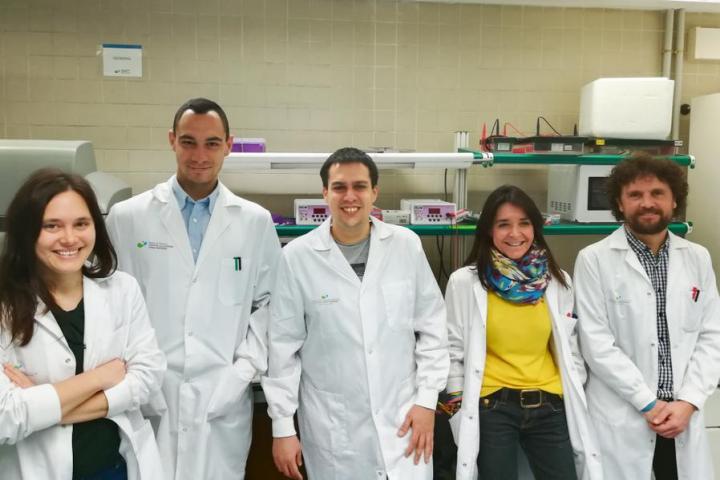
Credit: Pablo Menéndez
Acute myeloid leukemia (AML) is a hematological malignancy which incidence increases with age, that is biologically, phenotypically, and genetically very heterogeneous. Its treatment uses to combine chemotherapy followed by allogenic Hematopoietic Stem and Progenitor Cells transplant (allo-HSCT), based on the patient’s eligibility, to consolidate complete remission and prevent relapse. Yet, except for a few subgroups, so-called low-risk AMLs, relapses are frequent after consolidation therapy and transplant. Chemotherapy-related toxicity, refractoriness, and failure to eradicate leukemia-initiating cells are the major causes underlying AML progression and relapse. Unfortunately, improved AML treatments have only experienced minor developments over the last four decades, and current 5-year event-free survival remains in a 20% in adults and less than 70% in children, highlighting the desperate need for safer and more efficient therapeutics.
Lately, cellular immunotherapy based on CAR-Ts has generated unprecedented expectations in cancer treatment. CARTs immunotherapy consists of the engineering of human T-cells with chimeric antigen receptors (CARs) that direct the T-cells against the cell surface tumor antigens. CARTs have shown robust clinical responses in patients with B-cell malignancies thanks to its high efficacy, specificity, and persistence.
AML patients are challenging because of the absence of a universal AML target antigen to direct the CART and of the shared expression of target antigens with healthy hematopoietic stem and progenitor cells (HSPC), which may lead to life-threatening on target off-tumor cytotoxicity. Despite this, past studies have found that CD33- and CD123-redirected CARTs for AML exhibit robust anti-leukemic activity, and are in advanced preclinical and clinical development.
These CARTs have generated some preclinical and clinical controversy on whether they can be myeloablative, as they could also target healthy HSPC, which are essential for hematopoiesis or blood cell production. This suspicion lies in the fact that HSPC also expresses to a various degree these antigens, so these CARTs could also attack them.
Although some isolated short-term studies have been performed in vitro and in vivo to prove the safety of this CARTs therapy on healthy HSPC, there was no substantial evidence of mid- or long-term in vivo studies yet.
Matteo Baroni, researcher of the Stem Cell Biology, Developmental Leukemia and Immunotherapy Research Group of the Josep Carreras Leukaemia Research Institute, hypothesized with his colleagues that the time for a CART to be effective against a healthy HSPC could be longer than against a leukemic cell. They thought that the results provided from previous studies on the potential myelotoxicity of redirecting T-cells against CD123 underestimated the on-target off-tumor potential of these CARTs.
Baroni and his team provided extensive evidence, in a 6-week in vivo study, that the presence of anti CD123 CAR T-cells strongly inhibited normal hematopoiesis, causing irreversible impediments in the formation of new blood cells. These results have been recently published in the Journal for Immunotherapy of Cancer.
“We call for the caution of using CAR T-cells against CD123 in another way than before an allogenic transplant of AML patients that have experienced therapy refractoriness of disease recurrence or relapse, and cannot further benefit from standard chemotherapy. For these patients is a great alternative. We believe that these results will help clinicians to consider critical long-term effects if CAR-T CD123 cells remain, and prevent for other uses.” States Baroni.
This research has been funded by the European Research Council (CoG-2014-646903, PoC-2018-811220), the Spanish Ministry of Economy and Competitiveness (MINECO, SAF2016-80481-R), the Spanish Cancer Research Association (AECC-Semilla19)
###
Media Contact
Isabel Troytiño
[email protected]
Original Source
https:/
Related Journal Article
http://dx.




